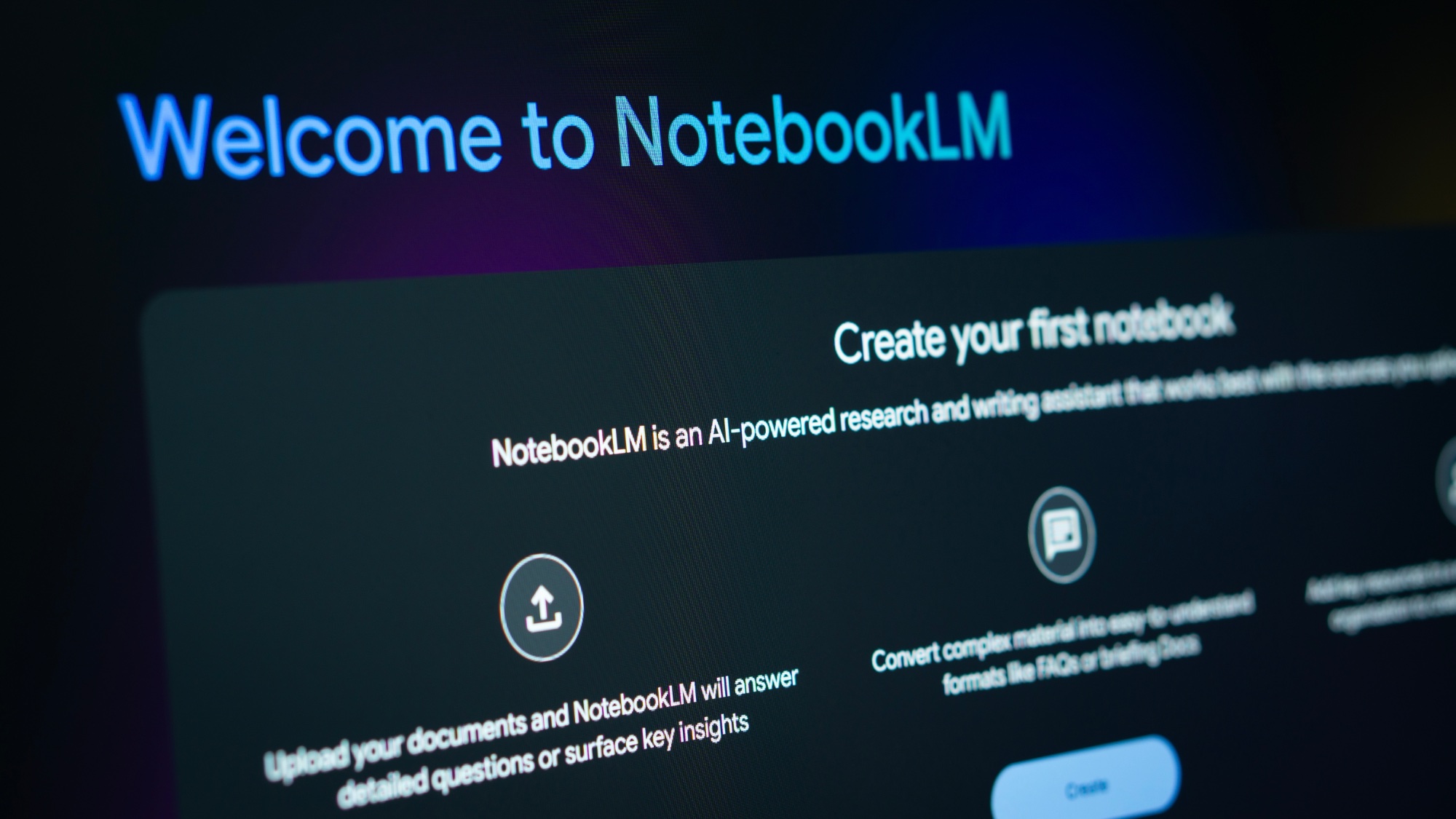The 25 best PlayStation games of all time
From Ratchet and Clank to Ridge Racer
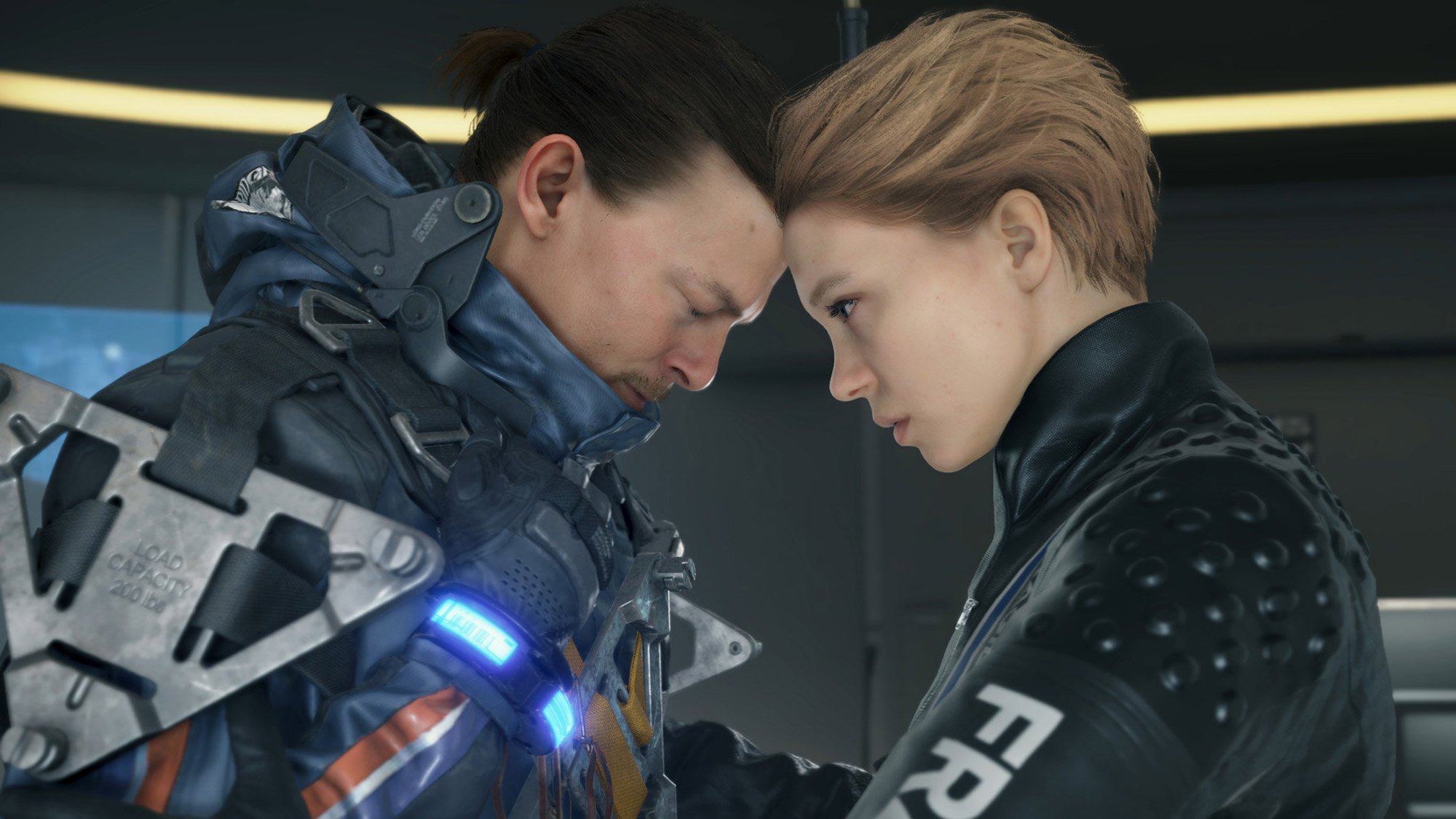
Here at Tom’s Guide our expert editors are committed to bringing you the best news, reviews and guides to help you stay informed and ahead of the curve!
You are now subscribed
Your newsletter sign-up was successful
Want to add more newsletters?
Join the club
Get full access to premium articles, exclusive features and a growing list of member rewards.
It was December 3, 1994 when the first PlayStation debuted in Japan, and in the 25 years since, we’ve all created lifetimes of memories with Sony hardware at the center. To commemorate the occasion, Tom’s Guide’s gaming writers nominated, voted and argued for an inordinate amount of time over the 25 best games ever to land on PlayStation platforms. Our criteria wasn’t so much that the titles had to be exclusive to Sony’s boxes, but that they were in some way (or perhaps at the time) closely associated with the brand.
It wasn’t easy. Many a sacred cow was sacrificed, and even for shoo-in franchises, like Uncharted, we struggled to come to a consensus on which entries most deserved a spot on this list. In the end, though, we believe we’ve settled on a group of games that evenly spans the PlayStation legacy, across a range of genres. You might even be surprised to find out how many recent titles earned our honors.
With that said, there’s nothing left to do but get down to business. Here are the 25 best PlayStation games of all time.
25. Wipeout Pure (PSP)
Much of Sony’s success in PlayStation’s early days can be attributed to the company’s willingness to appeal to more mature audiences than games typically had in the past. And that didn’t strictly mean a library overwhelmed with sex and violence. The company found more inventive and inclusive ways to attract older gamers, and there are few better examples of that ingenuity than Wipeout.
The premise is simple: take Mario Kart, but replace the wacky vehicles and cartoon mischief with anti-gravity crafts, a captivating futuristic world, a technical handling model, visuals developed by one of the most influential graphic design firms of the day, and copious amounts of electronic music from the biggest acts playing raves in Manchester in the ‘90s.
Of Wipeout’s nine entries, there are many standouts. However, for this list of the finest games ever to grace PlayStation hardware, our vote goes to 2005’s Wipeout Pure, as it renewed the series with a fresh stylistic vision just in time for the launch of the PlayStation Portable. It also looked jaw-droppingly good in its day, owing to the technical wizardry of Sony’s legendary Studio Liverpool team. —Adam Ismail
24. R4: Ridge Racer Type 4 (PS1)
Sony made a lot of questionable decisions with regard to the PlayStation Classic’s game roster, but one of the few it nailed was the inclusion of Namco’s 1999 arcade racing magnum opus. An artistic statement in a manner this genre rarely produces, Ridge Racer Type 4 is functionally sound and fun to drive, with all the technical trappings you’d expect from Namco at the zenith of its ‘90s might. But it's R4’s acid jazz soundtrack, stylish on- and off-track visuals, unique progression system and ambitious narrative-driven campaign that make it an unforgettable experience.
Get instant access to breaking news, the hottest reviews, great deals and helpful tips.
All the elements of R4’s world — from the fictional car brands, to the team identities and the environmental design — simply fit together as perfectly as they possibly could. There’s a cohesive, intangible beauty running through this title, and in the way it so effortlessly stirs up emotions so rare in a racing game. And the PlayStation certainly had a lot of racing games, but R4 was more like a playable racing drama. I wonder if we’ll ever see anything like it again. —Adam Ismail
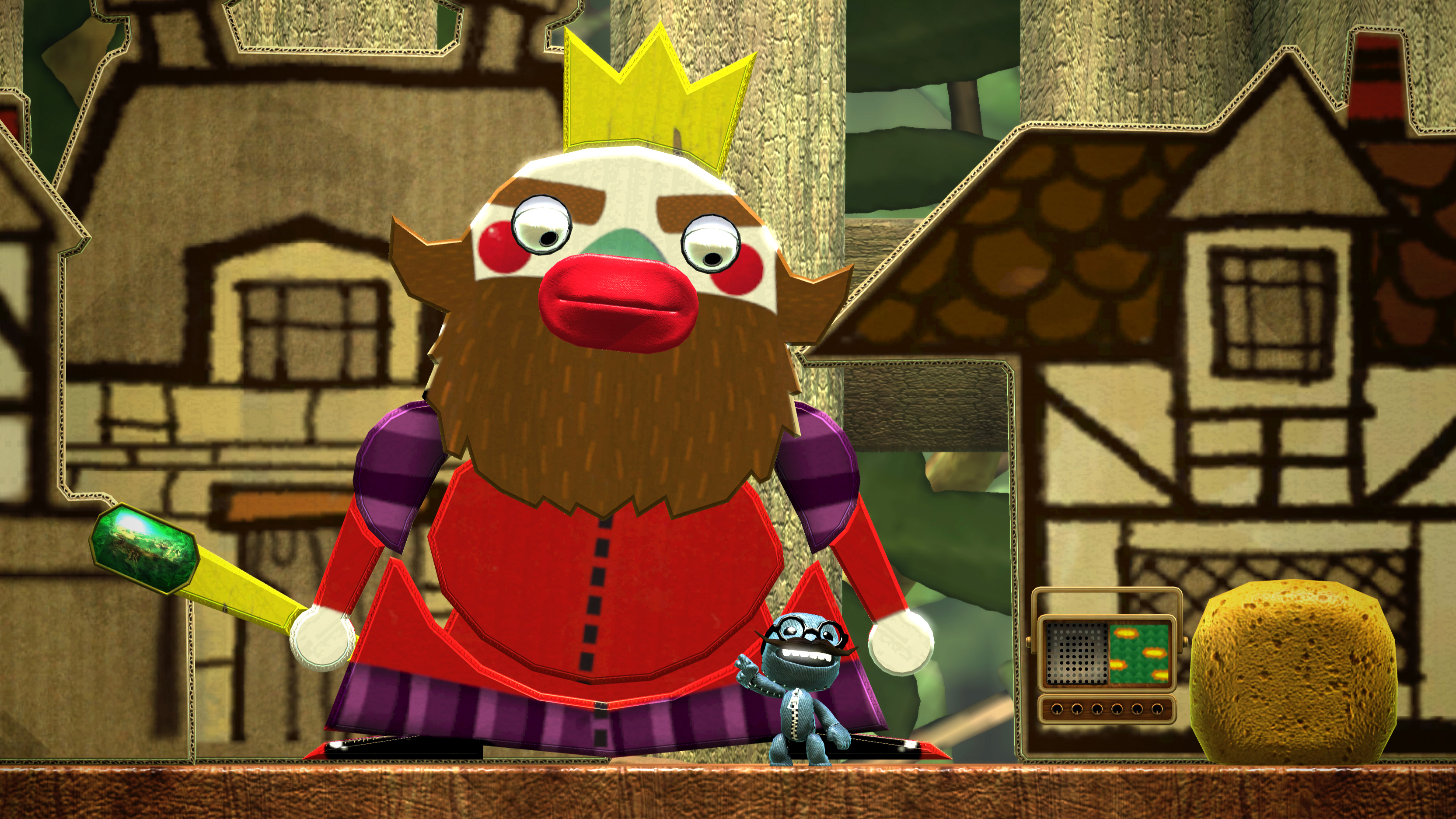
23. LittleBigPlanet (PS3)
When it debuted back in 2008, people initially wrote LittleBigPlanet off as another cutesy platformer. It was easy to do with the oddly adorable Sackboy helming the title. But beneath the cute frame, laid the groundwork for gamers to become creators. As you explored the world of LBP, you collected all manner of stickers and other collectables that could be used to create your own games thanks to the integrated level creator.
Soon, gamers began creating their own games, complete with their own characters. And best of all developer Media Molecule didn’t confine creation to platforming. Left to their own devices, gamers created games across multiple platforms including fighting, shooting and racing. It’s the predecessor to great level creators such as Mario Maker and the upcoming Dreams. —Sherri L. Smith
22. Crash Bandicoot (PS1)
You can't talk about the best PlayStation games of all time without at least mentioning the painful but epic platformer that is Crash Bandicoot. This was my very first PS1 game as a kid, and I distinctly remember sucking so hard at it that I wanted to bash my brains in. A lot of people criticized the "Crash-cam," which was when the camera faced behind you as you would run away from something. But those led to some of the best moments, because you had a split second to recognize what was in front of you and react accordingly. You can even find a Crash-cam scene in every single Uncharted game to date. Why? Because they’re that good.
The crazy level design in Crash Bandicoot is still difficult to this day, akin to user-created Super Mario Maker levels. That’s why I enjoy Crash so much, unlike other platformers. I mean, Crash Bandicoot was PlayStation's mascot for a reason — he's a cool bandicoot. —Rami Tabari
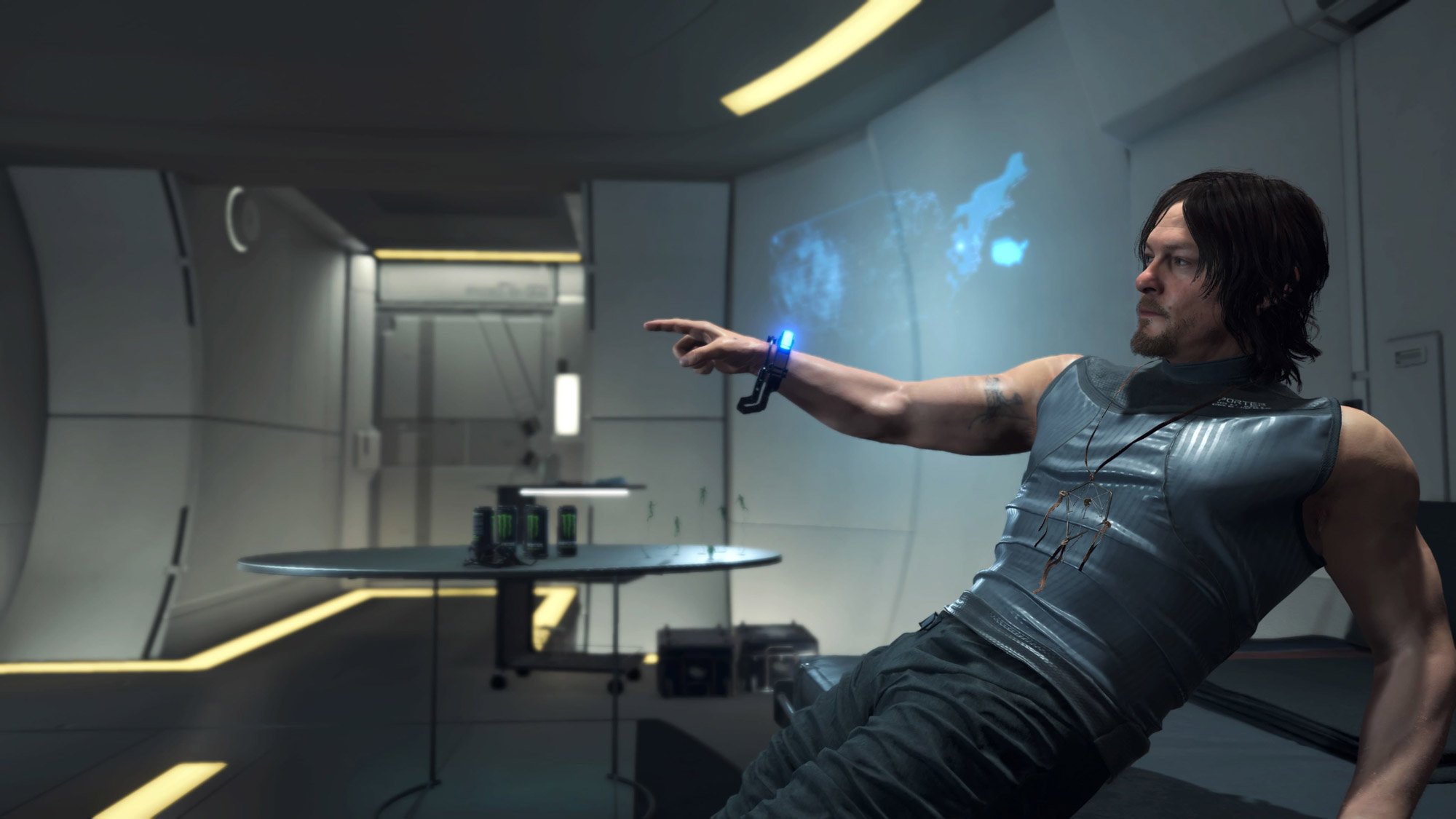
21. Death Stranding (PS4)
Death Stranding is a game that not very many people will play, or will start playing and likely drop it after the first hour because it's simply a "walking simulator." Well, you're half right but also wrong. Death Stranding takes us on a journey to reconnect the broken society of America in order to fight together against another catastrophic event that may or may not happen. It's deceptive by getting you to think that you're just walking from place to place, which you might be for some time, but you have a ton of crap to deal with along the way to make the experience super challenging.
First, you have the BTs, which are ghosts that will literally eat you alive. Then, you have the MULEs, who are crazy mailmen gone postal that want to murder you and steal your stuff. Now, top that off with Timefall, which is rain that will degrade your cargo faster than you can question, “why doesn't Sam have an anti-Timefall umbrella?” Oh, and you also have to make sure you don't fall off a mountain and damage… let's say an Antimatter bomb that can literally swallow you in a black hole. Yeah, Death Stranding is a survival game more than a walking simulator. And did I mention that the story is just crazy Hideo Kojima madness? Because it is, and I love it. —Rami Tabari
20. Metal Gear Solid: Peace Walker (PSP)
Apparently a lot of people haven't played the best Metal Gear game ever made, which is why it's so criminally low on this list. This also happens to be my personal favorite game of all time. Hideo Kojima didn't have super intensive graphics to work with because this was designed for the PSP, so instead of regular in-game cutscenes, he decided to go with comic-book style artwork. But they wasn't simple still images -- the cutscenes felt active and punchy, more than they ever would with in-game cutscenes. The game also brought over the modern mechanics of MGS4 and combined it with an entire co-op campaign as well as a full PVP multiplayer mode.
The story itself is an excellent follow-up to MGS3, as the entire plot is a metaphor for Big Boss trying to get over the loss of his former mentor. This game was stacked. And to top it off, it had the best collectible items in any game to date: full audio recordings of each character discussing and describing the world around them. Kojima didn't have much to work with, so the best way to get more backstory was to listen to these recordings, and if you collected them all, you got a little sneak peek of what was to come in MGSV. —Rami Tabari
19. Infamous (PS3)
Not so long ago, superhero media wasn’t that common, particularly when it came to brand new heroes. But Sony and Sly Cooper developers Sucker Punch presented the electrically-charged Cole McGrath to the world in 2009, along with the open-world action game he starred in, Infamous.
It’s a hero origin story primarily, with bike courier Cole being imbued with his electricity powers after one of his packages detonates. This destroys part of his hometown of Empire City, leaving it cut off from the outside world and under the control of warring gangs, some of whom also have unusual powers similar to his. You can then take a good or evil path (or a narratively and mechanically less interesting mix of the two), parkouring your way around the city’s buildings, saving or dominating the population, and working through the story to discover what happened and how to fix it. Your powers develop according to your karmic choices — precise and non-lethal if you’re virtuous, reckless and deadly if you’re not, making it well worth two playthrough just to see all abilities, as well as how Cole and the city change and react to your choices. It’s not a complicated morality scheme, but it’s well implemented across all of the game’s systems.
While the game led to two well regarded sequels and some unique spin-off DLCs, the first game’s stronger comic-book aesthetics and more interesting story twists make this the best of the bunch and why many (including me) hope Sony doesn’t continue to neglect this series. —Richard Priday
18. Twisted Metal Black (PS2)
Sure, Mario Kart’s Battle Mode has its legion of fans, but I’m willing to wager that those grew up with a PlayStation in lieu of a Nintendo 64 had more fun pulling all-nighters fueled by Sony’s vehicular combat franchise. While Twisted Metal 2 is likely where most people arrived at the series, it’s Twisted Metal: Black, the PS2-exclusive entry, that is our favorite, thanks to its smooth, fast-paced gameplay, dark storylines and unsettling visuals that traumatized a great many of us as kids (even if the graphics were too dim to actually see most of the time). It’s a small detail, but repeatedly hearing the opening riff of Rolling Stones' "Paint It Black" at title screen likely corrupted more of the youth than we’ll ever truly know.
The 2012 PS3 sequel was an admirable attempt at rebooting Twisted Metal and played well enough, though many lamented that it deviated from Black’s grisly tone. Still, we’d love to see the franchise make a return on the PS5 to mentally scar a generation anew. —Adam Ismail
17. Tekken 3 (PS1)
Barring a few exceptions such as the Dreamcast and Xbox 360, PlayStation consoles have been the definitive home of fighting games. And perhaps no fisticuffs franchise is as synonymous with PlayStation as Tekken, which helped put 3D fighters on the map with its crisp polygonal graphics and fluid, juggle-heavy combat system. Tekken 3 is easily the best installment of the PS1 era and still beloved by franchise fans today, delivering improved movement and combo options over previous installments while introducing now-iconic characters such as Jin Kazama and Ling Xiaoyu. It also offers tons of content for the non-competitive, including a Tekken Force beat-em-up mode and a volleyball-esque Tekken Ball video game. And then there’s Gon. Sweet, sweet Gon. —Mike Andronico
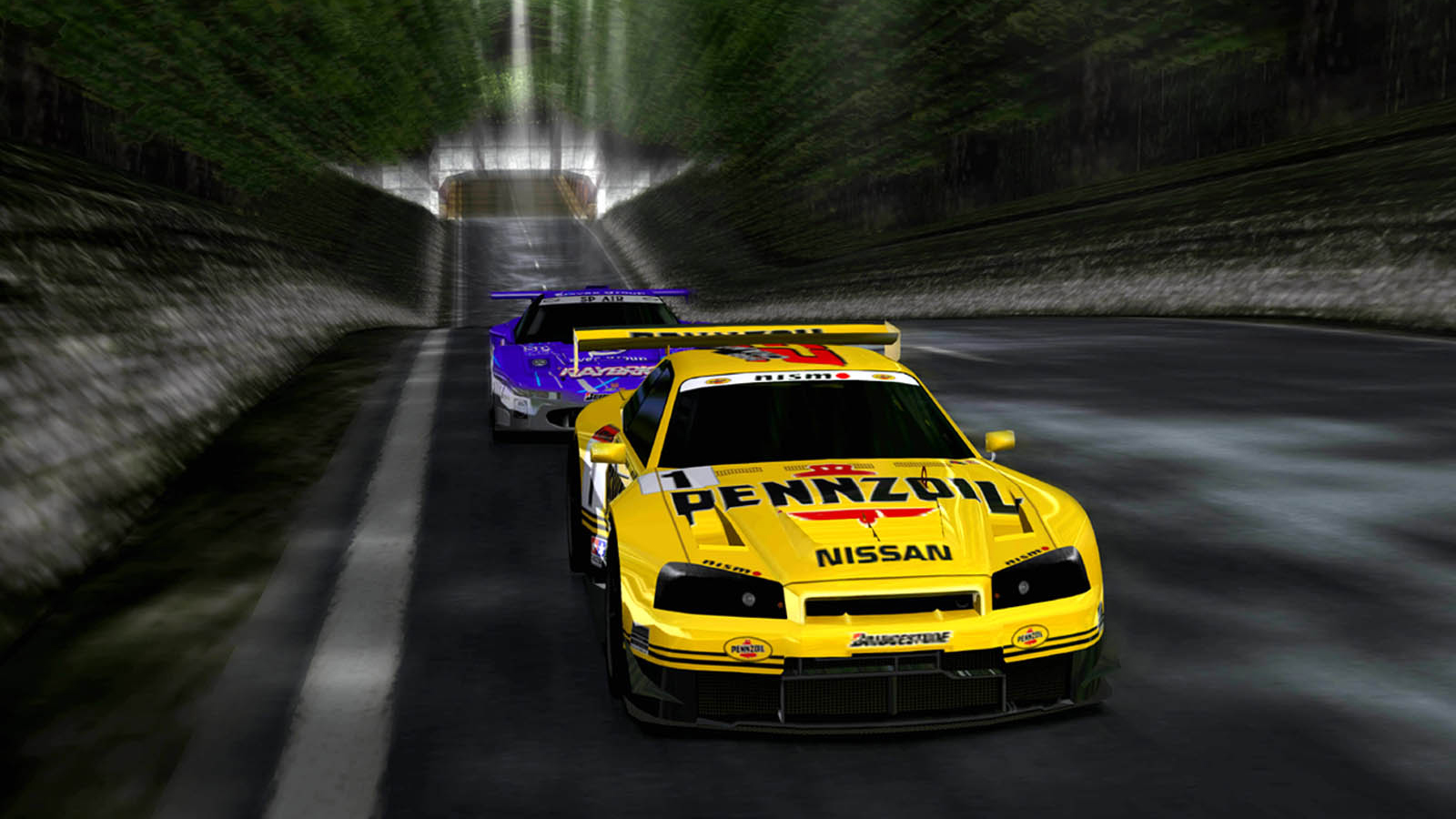
16. Gran Turismo 3: A-Spec (PS2)
If the first Gran Turismo demonstrated to the world that racing simulators could be a viable genre, Gran Turismo 3 was the one the perfected the formula. Sitting pretty at second on the PlayStation 2’s list of all-time best-sellers, GT3 was a wonderfully balanced, expertly curated drive that was equal parts enjoyable, challenging and gorgeous in motion. But unlike future entries in the series, the third installment of Polyphony’s Real Driving Simulator wasn’t so massive and unwieldy that it ran the risk of demoralizing players. To this day, GT3 remains a sim racer that knows exactly what it wants to be, that never wastes your time with frivolous, plodding events to pad the career mode. It’s little wonder many fans still regard it as the franchise’s finest hour. —Adam Ismail
15. Shadow of the Colossus (PS2)
Shadow of the Colossus is as much a work of art as it is an adventure game. At its core, it's a simple tale of a boy, Wander, who travels by horseback across a forbidden land to slay six colossi and save a girl. Set in a fantasy world, the game’s remote, expansive terrain and deliberately ambiguous backstory create an alluring mysticism that will stay with you long after you've slain the last colossi. While the premise might not sound exciting on the surface, the 16 boss fights are varied and rewarding. You can't talk about the beauty of this game without mentioning the orchestral soundtrack, which haunts this silent, lonesome adventure. Shadow of the Colossus remains as relevant as ever and was even remastered for PlayStation 3 and released in HD on Playstation 4. —Phillip Tracy
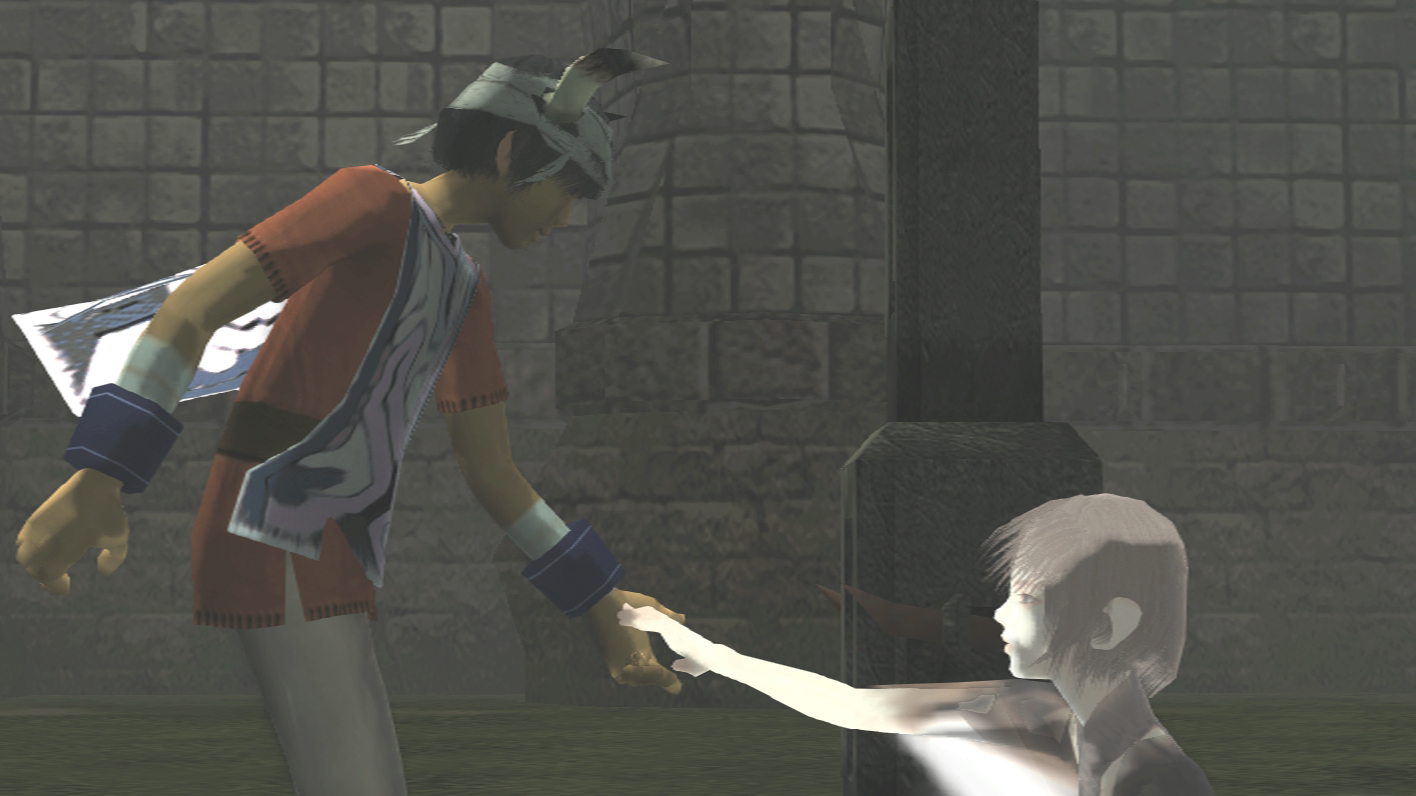
14. Ico (PS2)
The premise of Ico is very simple: a cursed boy breaks free of his tomb, befriends a mystical girl, and tries to escape a fortress besieged by dangerous, shadowy figures and an evil queen. There isn’t much to the plot, frankly, because there doesn’t have to be. Like creator Fumito Ueda’s later works, Shadow of the Colossus and The Last Guardian, Ico isn’t about the literal; it’s about the ethereal feeling of navigating a Giorgio de Chirico painting come to life and discovering all the puzzles and secrets within, while forging an unlikely emotional bond. It’s also not a particularly long game, and since it’s available on both PS4 and PS3, it’s easy enough to revisit or explore for the first time, which we wholeheartedly encourage you to do. Consider this: Ico’s save screen music is so beautiful that it’s made me cry on several occasions, and I definitely cannot say that about any other game. —Adam Ismail
13. Silent Hill 2 (PS2)
Where Resident Evil was scaring our pants off with scads of mutated abominations, the Silent Hill series was going for deeper more psychological horror. Considered one of the best in the series, Silent Hill 2 brings gamers back to the titular town. This time around, you’re playing as James Sunderland as he searches for his wife who died three years earlier. As he explores the town, we get some of the series most iconic monsters such as Pyramid Head. Depending on your actions throughout the game, you can trigger one of six endings — the weirdest of which involves an alien abduction. Weird endings aside, Silent Hill is a moody, atmospheric game that delves the recesses of the human mind and plays with the guilt, anger and sadness that lies within. —Sherri L. Smith
12. Tony Hawk’s Pro Skater 2 (PS1)
I can already hear Millencolin’s "No Cigar" in my head as I type this. Tony Hawk’s Pro Skater 2 near-perfected the addicting arcade skateboarding of the original game, introducing the manual move that allowed for even longer, more stylish trick combos. But it was just as special for its sights and sounds, which include now-iconic courses like School II and Marseille as well as an amazing punk/hip-hop soundtrack that helped shape an entire generation of gamers’ music tastes. Sure, there are better games on this list, but few of them are as cool as THPS 2. —Mike Andronico
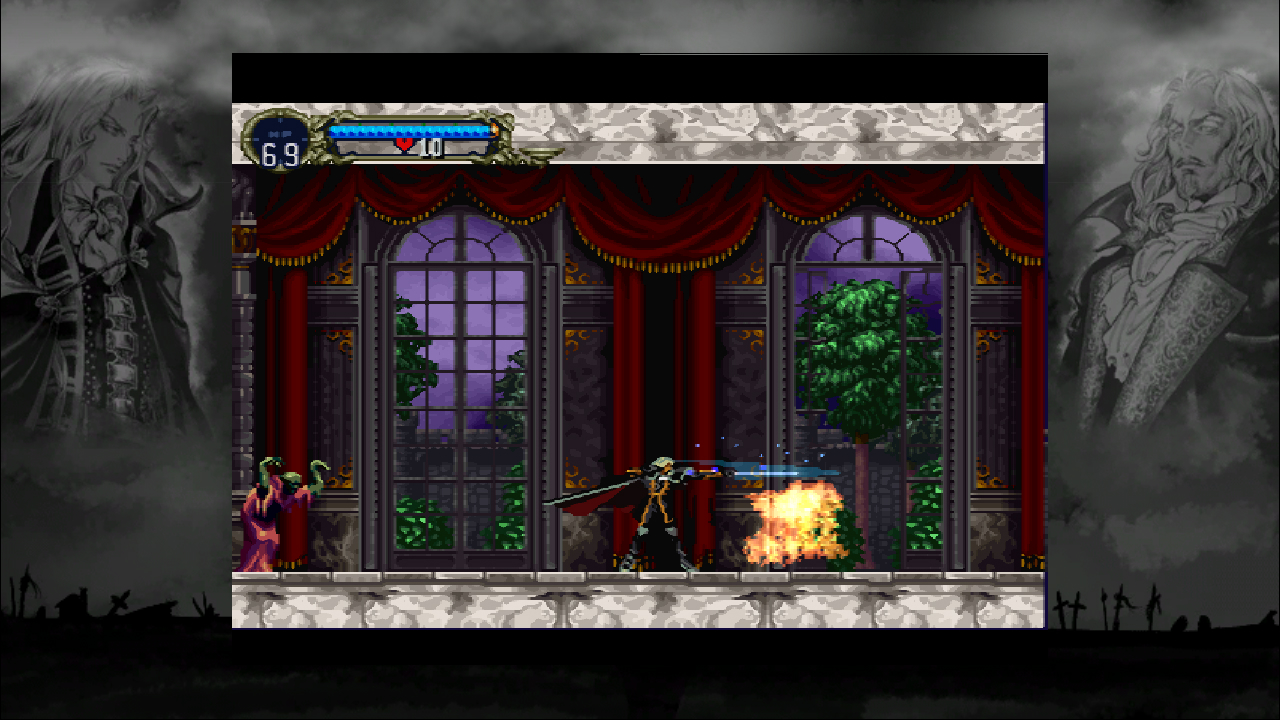
11. Castlevania: Symphony of the Night (PS1)
Symphony of the Night isn't the game that first put Castlevania on the map, but it is the game that changed the series forever. In this innovative RPG/side-scroller/exploration game, you take control of Alucard: son of recurring antagonist Dracula, and reluctant ally of the heroic Belmont family. As you explore Dracula's gigantic castle, you'll fight a huge variety of enemies, gain experience to increase your stats, equip lots of weapons and increase your health by toppling the game's tough bosses.
Castlevania: Symphony of the Night didn't exactly invent the Metroidvania genre, but it's arguably the apotheosis of the style. You never know what you'll find next, whether it's a save point, a new area, a secret room or a grotesque monster. Furthermore, each new ability you gain lets you unearth just a little more of the map, whether it's a double-jump or transforming into a wolf. There's also a heartfelt story about Alucard's twisted relationship with his father. While Symphony of the Night eventually came to other platforms, it all started on PlayStation. —Marshall Honorof
10. Resident Evil 2 (PS1)
The Resident Evil franchise has grown to span tons of different genres and platforms, but it began life as the PlayStation’s defining survival horror series. And many fans will tell you that it doesn’t get better than Resident Evil 2, which expanded on the original’s tense zombie-survival action with multiple story scenarios for heroes Leon Kennedy and Claire Redfield as well as one of the most iconic video game locales ever in Raccoon City. There’s a reason Resident Evil 2 was remade for 2019 — the original version’s tense atmosphere, clever puzzles, memorable bosses and story twists hold up as some of the best in the survival horror genre, and make for one of the greatest PlayStation games of all time. —Mike Andronico
9. Ratchet and Clank (PS2)
This 2002 game launched the careers of a pair of Sony’s most famous mascots. While an E-rated game, Ratchet and Clank mixes a lighthearted colorful aesthetic with some more mature elements, making it fun for kids or adults. The leading pair’s relationship changes noticeably through the course of the game, the constant demands of NPCs for your money to progress is spun as desperate people trying to scratch a living while the Blarg and Chairman Drek wage war on the galaxy, plus there’s plenty of suggestive and silly moments if that all sounds too serious.
But the gameplay is really what helped the series stand out and get numerous sequels (plus a divisive reboot on PS4). Platforming is enhanced by Clank’s backpack helicopter rotors or rocket jets, while attacking uses a variety of melée strikes and particularly Insomniac Games’ imaginative weaponry, featuring guns that turn enemies into chickens, a glove that dispenses suicidal biting robots, and a cannon that vacuums up enemies and shoots them at others. Every part of the game is intensely likable and has aged excellently, making it an obvious entry for this list. —Richard Priday
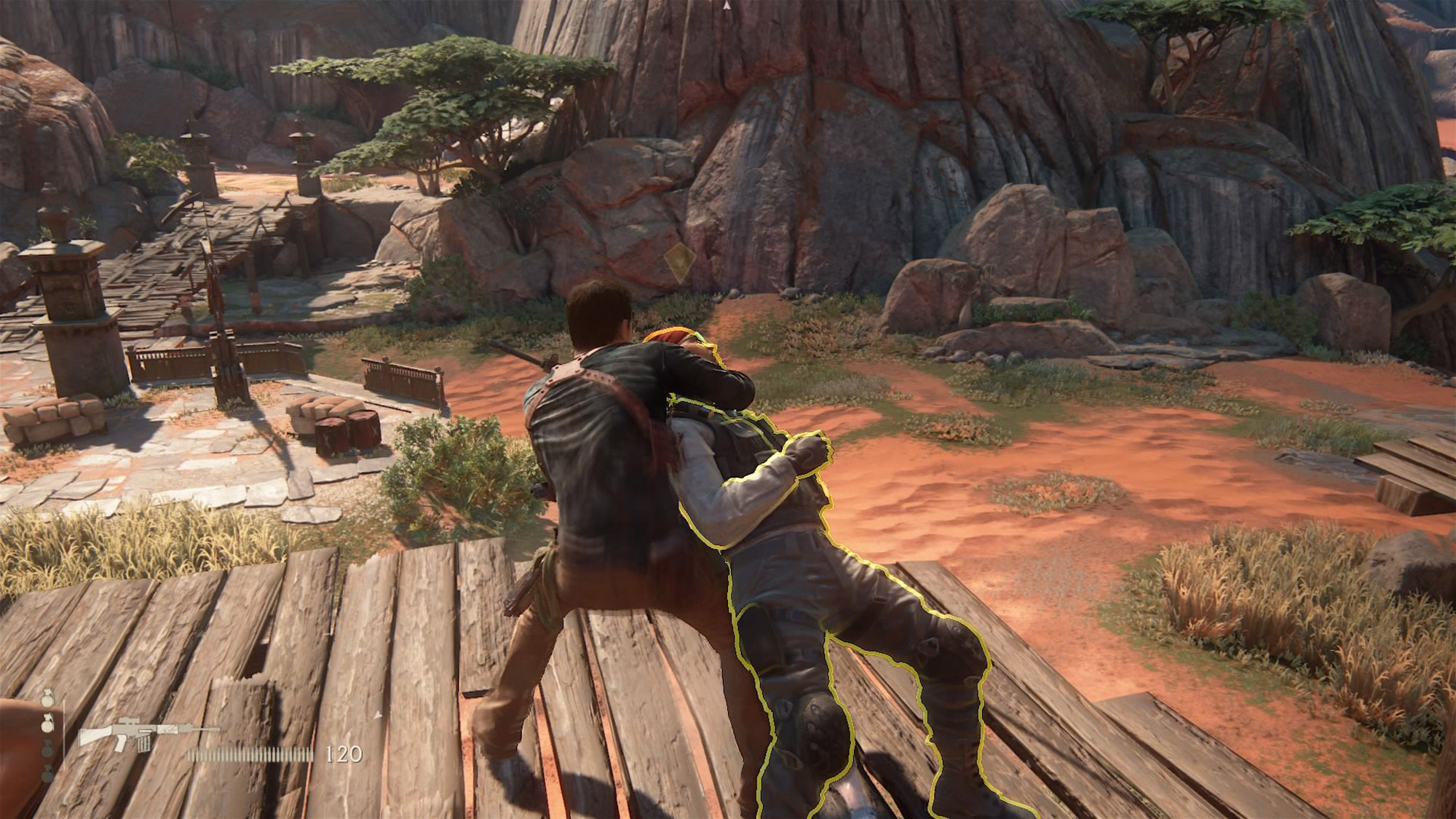
8. Uncharted 4: A Thief's End (PS4)
A lot of people debated as to why Uncharted 4 is up here instead of Uncharted 2, and what I can say is that, while I love Uncharted 2, Uncharted 4 is better. The deep emotional narrative that we loved in The Last of Us can be seen trickling into this game, as it was directed by the very same person, Neil Druckmann.
Uncharted 4 is also arguably the best third-person shooter of all time. It's camera and reticle movement is the smoothest I've ever seen in a video game. Now combine that with simple but cinematic melee combat as well as smooth parkour and a sweet grappling hook — damn, this game was so much fun. The mechanics translated to multiplayer so well that I wish other games would just even attempt to be as good as this. And the way Uncharted 4 wraps up the series is one of the most well-written endings I've ever had the pleasure to witness. —Rami Tabari
7. Devil May Cry 3 (PS2)
The Devil May Cry series gave us the most stylish hack-and-slash games to ever exist. Devil May Cry 3 is the most significant and the best among them because it not only revamped the gameplay entirely but also gave us more of an emotional narrative and birthed the cocky Dante character that we know and love today. This game was the first to introduce fighting styles, like Swordmaster and Gunslinger, which let you use a variety of badass new tricks and combos. DMC3 was also the first to take a deep dive into Vergil's character, who's Dante's brother and the main antagonist of this game. Dante plays the comedic cocky type for a good portion of this game, but damn does it send you on a rollercoaster of emotions toward the end. The game is called Devil May Cry for a reason after all. —Rami Tabari
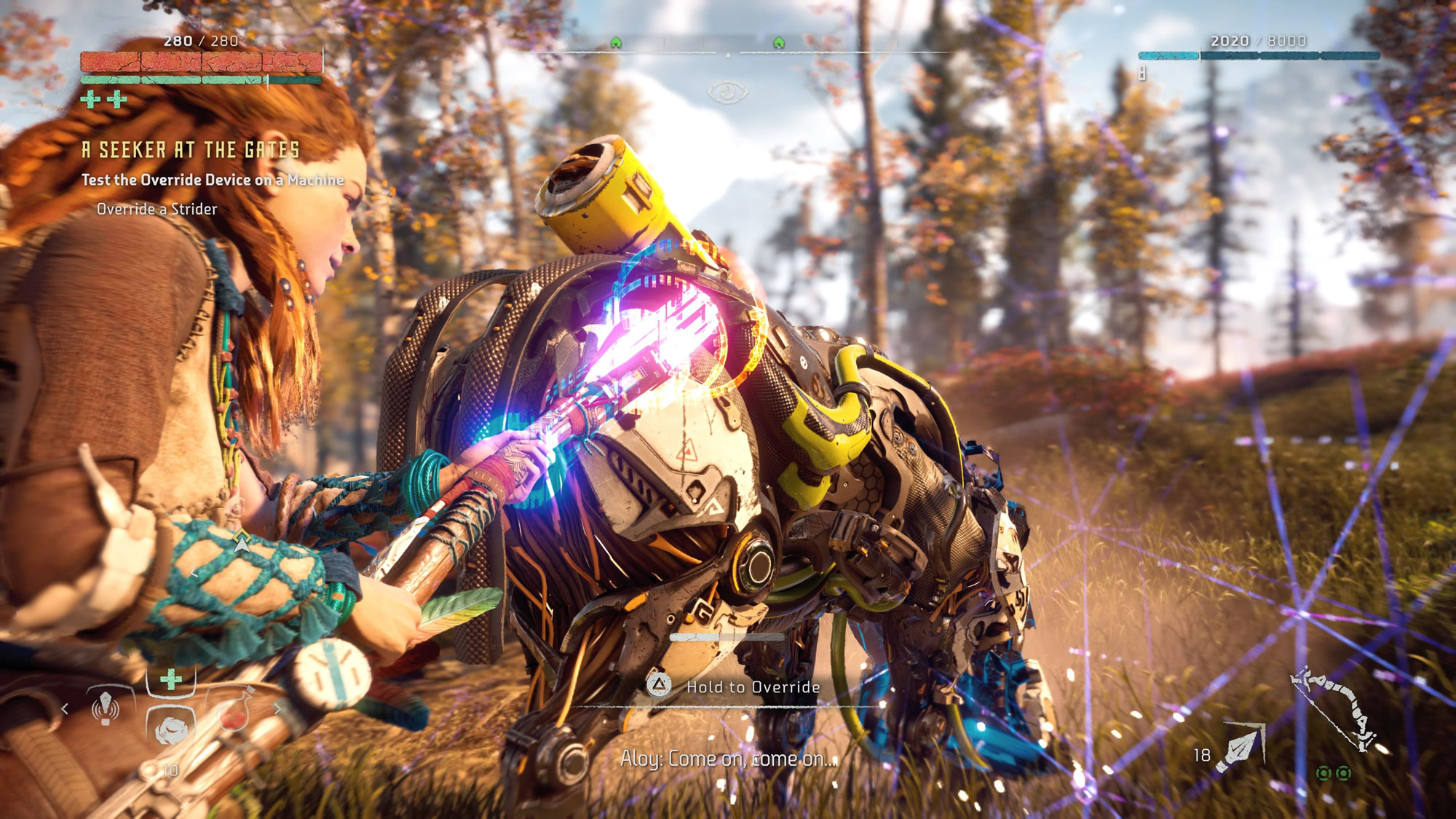
6. Horizon Zero Dawn (PS4)
Post-apocalyptic worlds can often be grey and familiar sci-fi fare. But Guerilla Games made a totally unique one — filled with tribes of humans living in the shadow of mechanical monsters, all living in an open-world with diverse environments and a touching story of the outcast Aloy finding her place in this world of dangerous technology and unfriendly humans.
The standout element of Horizon Zero Dawn are these robot enemies, built to resemble familiar creatures from nature. Even fighting mid-sized ones is an interesting challenge, each featuring different weak spots and elemental strengths. And because you’re fighting with spears, bows, catapults and other lo-tech weaponry, you’ll need to think carefully and maybe lay some traps down before you commence battle.
Each game system you expect to find in Horizon Zero Dawn is rendered fresh and new by the combination of setting and Aloy’s abilities, and following the story to discover the truth behind the way the world is or testing your mettle against the most dangerous artificial beasts will keep you engaged until you’ve hit 100% completion. —Richard Priday
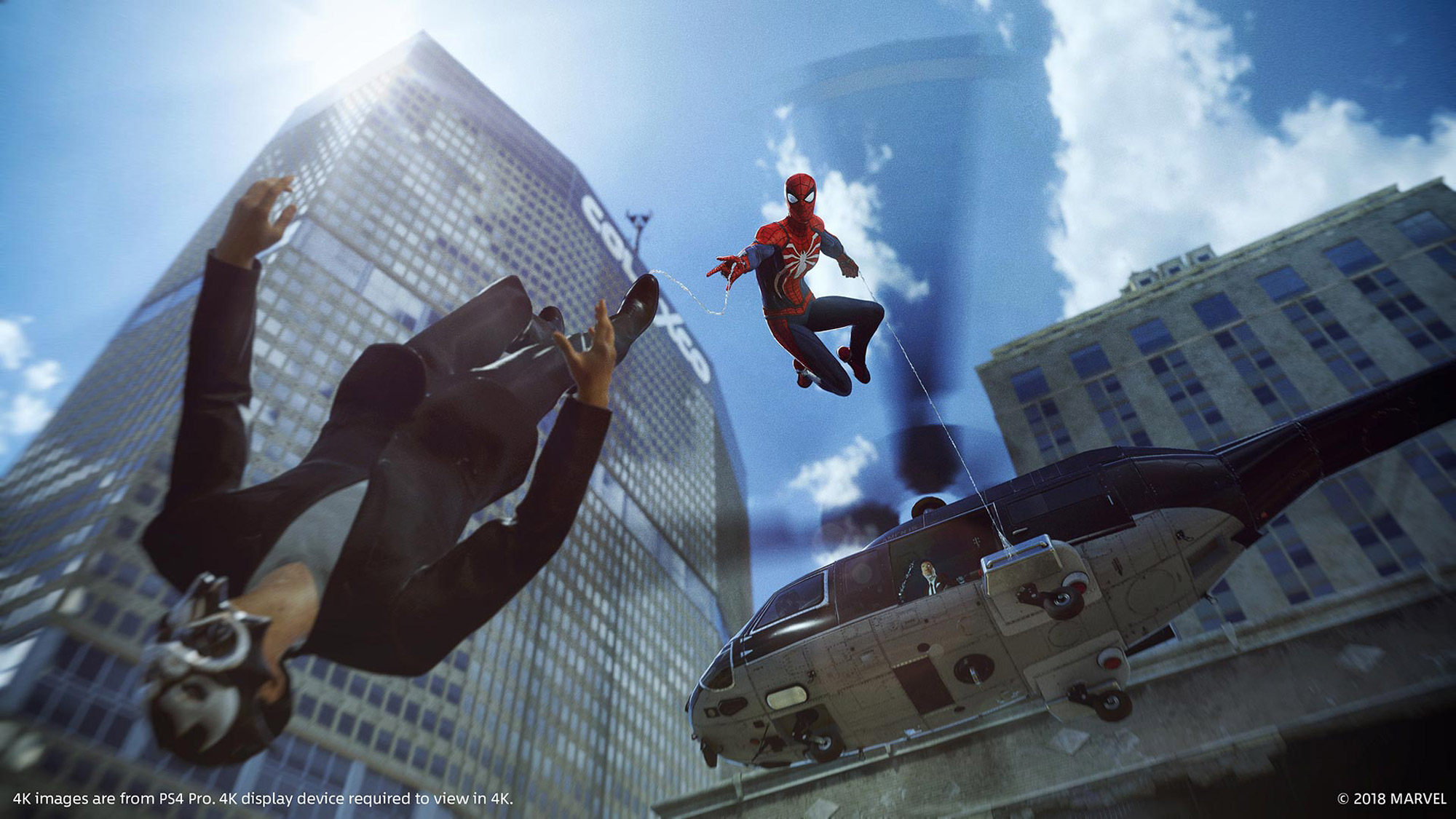
5. Marvel’s Spider-Man (PS4)
After more than a decade of open-world Spider-Man games that ran the gamut from great to god-awful, Insomniac finally perfected the formula with its 2018 wall-crawling masterpiece. Marvel’s Spider-Man captures the thrill of swinging around New York City like no game before it, with a tight traversal system that lets you wall-run, web-zip and swing between skyscrapers with satisfying precision. But Insomniac delivered just as big in the game’s refreshing story, which puts a unique spin on characters like Peter Parker, Mary Jane Watson and Otto Octavius while expertly balancing Peter’s struggles with both supervillains and everyday 20-something problems. Factor in a delightfully fun, Arkham-esque combat system and one of the most gorgeous open-world New York City environments to date, and Spider-Man PS4 isn’t just the best Spider-Man game ever made — it’s an all-time PlayStation essential. —Mike Andronico
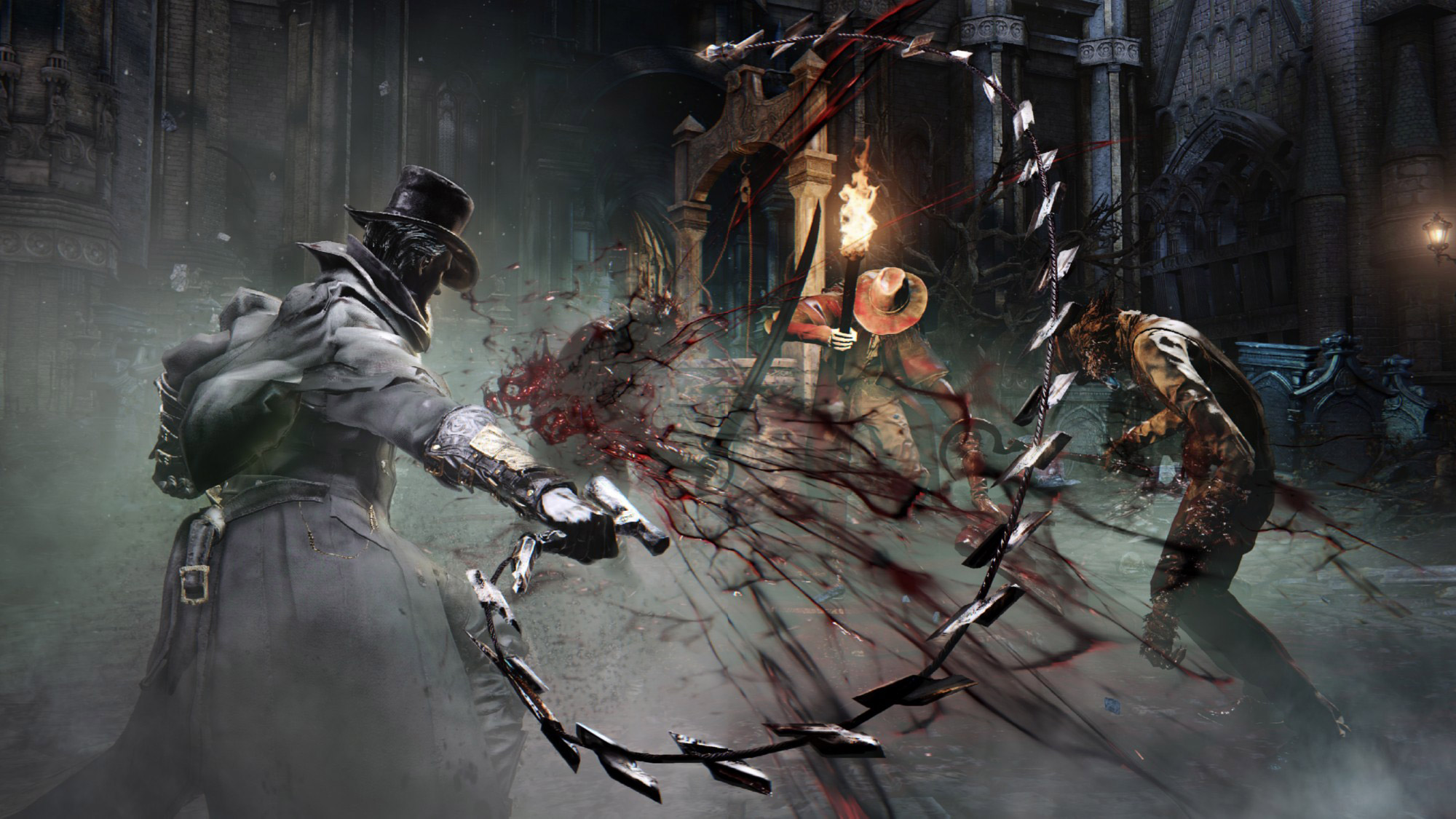
4. Bloodborne (PS4)
From Software’s Dark Souls is an immensely popular RPG series known for its unforgiving combat and mysterious world. All three of the games in the series are very good, as is the more recent Sekiro: Shadows Die Twice, but our favorite example of this genre is the PlayStation 4 exclusive Bloodborne.
Instead of the traditional medieval theme, From Software chose instead a gothic horror setting, with dense urban areas, magic powers stemming from the use of blood, and more modern weaponry, all of which can transform between two modes for additional utility in a fight.
The core ‘tough but fair’ gameplay feels similar to Dark Souls, but a few changes, like the removal of shields and the introduction of a damage-reducing ‘Rally’ mechanic, mean you have to fight with speed and dexterity, making it at least distinct if not preferable for veteran or fresh players. The bosses you face on your journey are as beautifully horrific as the environments, and if you can’t get enough of the gameplay, there’s the Chalice Dungeons; randomly generated levels that have their own progression path outside of the normal game. Bloodborne is a near-perfect combination of old and new ideas, a great introduction to the ‘souls-like’ genre but also a challenging and distinct experience for veteran players. It’s a nightmare you want to keep having. —Richard Priday
3. Final Fantasy VII (PS1)
Modern Final Fantasy wouldn't exist without the PlayStation. And it's possible that the PlayStation as we know it wouldn't exist without Final Fantasy VII. Allow me to explain:
Before Final Fantasy VII, Japanese RPGs were a fairly niche genre. Fans loved the Final Fantasy games on the NES and SNES, but they were never going to be movers and shakers in the gaming world. In certain ways, it was hard to contain Final Fantasy's huge, imaginative worlds and intricate stories on cartridges with sprite-based graphics.
Enter the PlayStation and Final Fantasy VII. Thanks to the massive storage space of a disc-based gaming system, Squaresoft packed FFVII full of 3D graphics, full-motion videos and choral music, all to support a massive, winding story that was unlike anything fans had ever experienced.
And the result? FFVII was a massive crossover hit, which opened up the series to a brand-new audience, and made "PlayStation" and "JRPGs" nearly synonymous for a decade. Final Fantasy would eventually branch out to other systems again, but every mainline entry since VII has been on a PlayStation system. No other console can boast that. —Marshall Honorof
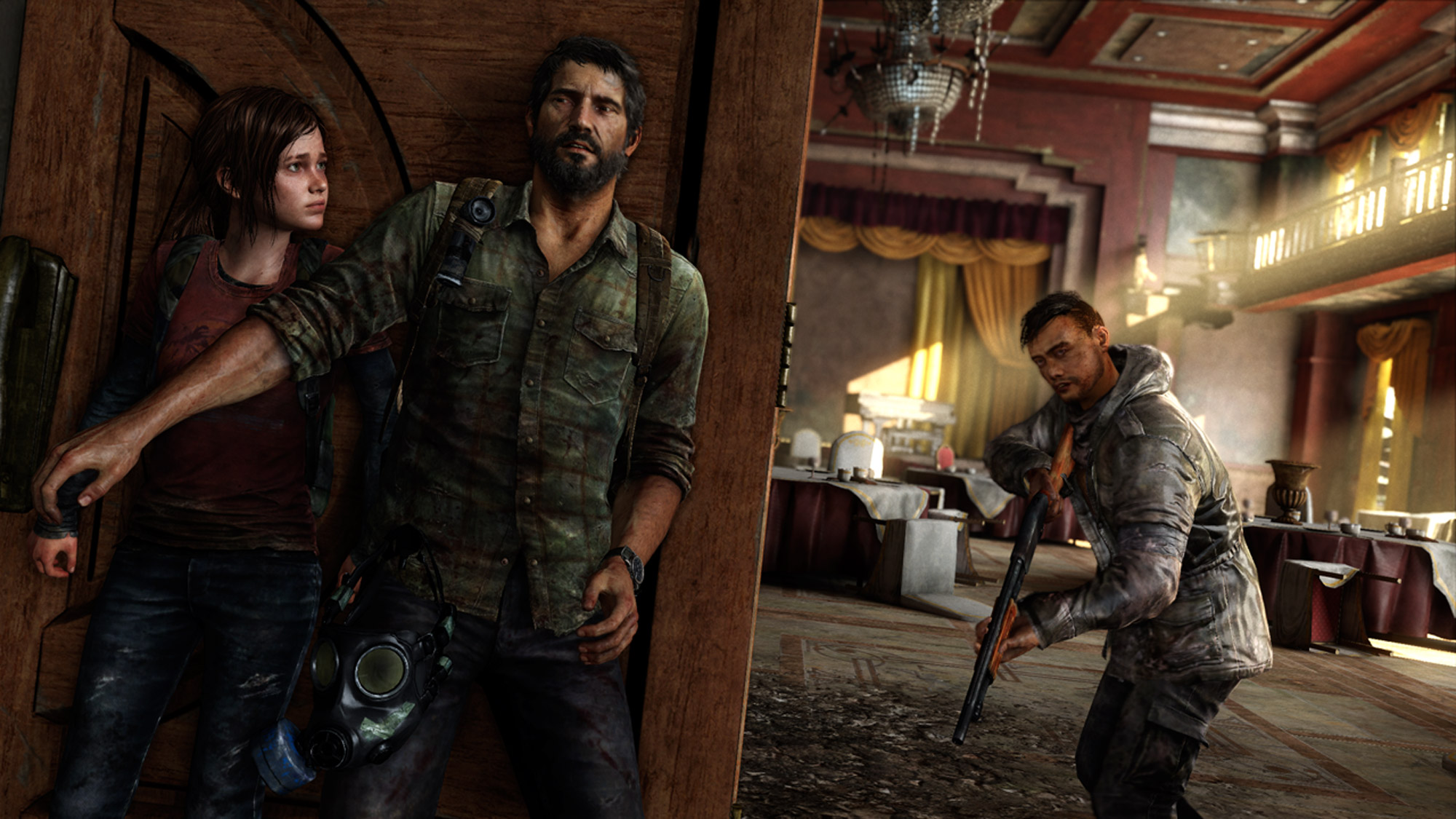
2. The Last of Us (PS3)
Among the best zombie stories told on any medium, The Last of Us packs an emotional weight we hadn't seen in video games before. It starts with the pulse-pounding opening sequence and ends with the shocking final plot twist that will spark debates among you and your friends for years to come. But it isn’t for the faint of heart; Naughty Dog's masterpiece brilliantly blends zombie-killing action with a gorgeous adventure story set in a truly terrifying post-apocalyptic environment. Stealth and attrition are key to surviving this hellscape but as exhilarating as the action sequences are, what elevates The Last of Us is its rich, complex protagonists. The Last of Us is a must-play PlayStation game, one that will keep you awake at night (with the lights on) questioning good and evil. —Phillip Tracy
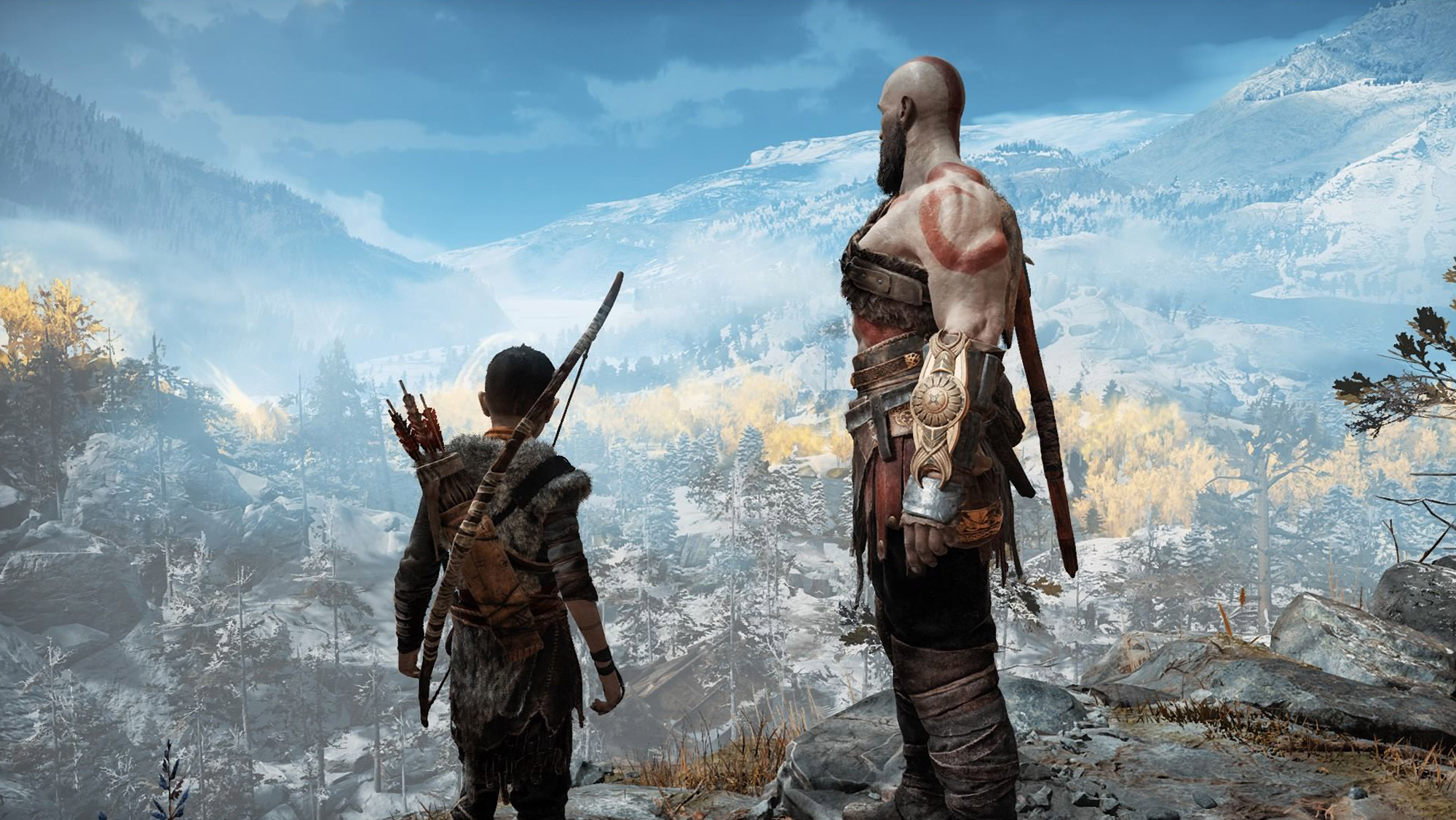
1. God Of War (PS4)
God of War lands at number one as the best PlayStation game of all time. Are you surprised? We're not surprised. God of War for the PS4 is incredibly significant for its successful relaunch of an already established franchise. It took Kratos, the badass vengeful god from the original trilogy, and turned him into an emotional and relatable character with a child. Not only did it bring the story down to earth, but it also brought the camera and the combat down as well, giving you less of a hack-and-slash and more of a precision-based action game. Those two radical changes worked, giving us one of the best action games and best story-driven narratives we've ever played. —Rami Tabari

Tom's Guide upgrades your life by helping you decide what products to buy, finding the best deals and showing you how to get the most out of them and solving problems as they arise. Tom's Guide is here to help you accomplish your goals, find great products without the hassle, get the best deals, discover things others don’t want you to know and save time when problems arise. Visit the About Tom's Guide page for more information and to find out how we test products.
 Club Benefits
Club Benefits










